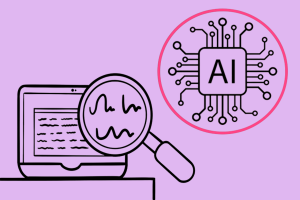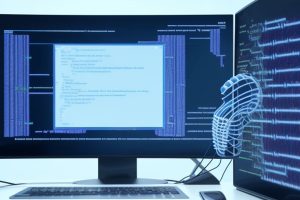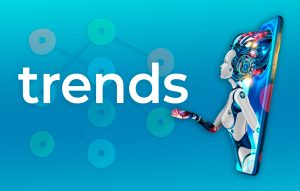Will AI Replace Programmers? Examining the Potential Impact on the Future of Software Development
Jerome Stull 31.10.2023 0
In today’s era of rapid technological advancements, the growing influence of artificial intelligence (AI) begs the question: Will AI replace programmers? As the capabilities of AI systems expand, there is a palpable buzz surrounding their potential to revolutionize various industries, including software development. In this article, we will delve into the subject, exploring both the possibilities and limitations of AI in relation to programmers. By examining current trends, developments, and expert opinions, we aim to gain insights into the potential impact of AI on the future of the programming landscape.
How many people in the world work in development?
Insights into the world of software developers unfold through unconventional surveys conducted by acclaimed organizations such as Evans Data Corporation, DataUSA, and Stack Overflow. These surveys furnish a cornucopia of statistical treasures, shedding light on the evolving trends within the software development community. Let us explore the intriguing revelations brought forth by these statistics:
1. Big Data and Advanced Analytics: An Impressive Cohort An astounding figure of 6 million developers passionately engages with big data and advanced analytics. Their inquisitive minds strive to decipher the immense potential hidden within the vast depths of information. These developers spearhead innovation, harnessing the power of data to drive insights and create impactful solutions.
2. The Rising Tide of Artificial Intelligence Experts The realm of artificial intelligence (AI) boasts a remarkable presence, with an estimated 300 thousand highly skilled specialists worldwide. These individuals, equipped with razor-sharp intellect and mastery of AI, pave the way for transformative advancements. As AI continues its ascent, the talent pool of experts steadily expands, pushing the boundaries of what is possible.
3. The Internet of Things (IoT): A Global Developer Endeavor Across the globe, 2 million developers bear the banner of the Internet of Things (IoT) applications. Embracing the interconnectedness of devices, these developers possess a firm grasp on the potential brought forth by IoT. Their tireless efforts fuel the creation of a smarter and more interconnected world, where devices collaborate seamlessly to enhance daily experiences.

4. Cloud Development: A Boon for Millions A staggering 4 million developers (26% of the community) opt for the convenience and flexibility offered by cloud development environments. With their code residing in the ethereal realm, these developers relish the ease of access and collaborative prospects facilitated by cloud platforms. Embracing cloud technologies empowers them to cultivate efficiency and accelerate their projects with utmost agility.
5. Global Dominance in Software Development The world stage of software development witnesses a captivating competition among nations. Surging ahead, China claims the crown, boasting the largest number of software developers, with an awe-inspiring count of nearly 7 million skilled individuals. Close on its heels, India displays its software engineering prowess with a formidable force, gathering nearly 5 million talented minds. The USA follows suit, wielding its technological might with approximately 4.4 million software engineers. Germany contributes significantly as well, with a commendable presence of 1 million developers, while Japan adds its unique flair with an impressive count of 918 thousand software experts.
The Emergence of AI in Programming:
Over the years, AI has made remarkable strides in areas such as natural language processing, machine learning, and data analysis. These advancements have sparked speculation about the potential of AI to automate programming tasks traditionally performed by human programmers. Proponents argue that AI can streamline coding processes, enhance accuracy, and increase overall efficiency in software development. However, it is crucial to acknowledge the limitations and complexities inherent in programming tasks, which pose significant challenges for AI systems.
AI as a Programming Assistant:
One promising application of AI in programming is its role as a programming assistant. AI-powered tools can assist programmers in tasks such as code generation, bug detection, and optimization. By leveraging machine learning algorithms, these tools can learn from vast repositories of code and provide suggestions, thereby saving time and effort for developers. Such AI assistants can be valuable assets, augmenting the capabilities of programmers rather than replacing them entirely.

The Limitations of AI as Programmers:
While AI holds immense potential, it is important to recognize the existing limitations faced by AI systems when it comes to programming. Programming is a dynamic and creative process that often requires intuition, problem-solving abilities, and a deep understanding of human needs. While AI can mimic certain aspects of programming, it struggles with abstract reasoning, context comprehension, and the ability to perform tasks outside its training domain. Therefore, the human touch and expertise of programmers remain invaluable in tackling complex programming challenges.
The Collaboration between Humans and AI:
Rather than fearing AI as a potential rival, programmers can embrace its capabilities and collaborate with AI systems. By harnessing the power of AI, programmers can focus on higher-level tasks such as system design, architecture, and user experience. AI can handle mundane and repetitive coding tasks, freeing up valuable time for programmers to innovate and explore new frontiers in software development. This synergy between human programmers and AI can lead to a more efficient and productive programming environment.

The Ethical and Social Implications:
As AI becomes increasingly integrated into programming, we must address the ethical and social implications associated with this shift. Job displacement is a valid concern, as AI automation may lead to changes in the job market for programmers. However, it is worth noting that historical precedents indicate that technological advancements often create new opportunities and foster the need for upskilling. Additionally, ensuring the ethical use of AI in programming and safeguarding against biases and security vulnerabilities should be a priority.
Conclusion
While AI undoubtedly has the potential to transform certain aspects of programming, the notion of AI fully replacing human programmers remains unlikely in the foreseeable future. Rather than a complete replacement, AI is poised to assist programmers, enhancing their capabilities and enabling them to tackle complex challenges more efficiently. The collaboration between humans and AI holds promise for a future where programmers can leverage the power of AI to push the boundaries of innovation. As the programming landscape continues to evolve, adapting to the changing role of AI will be paramount for programmers to stay relevant and thrive in a technology-driven world.




